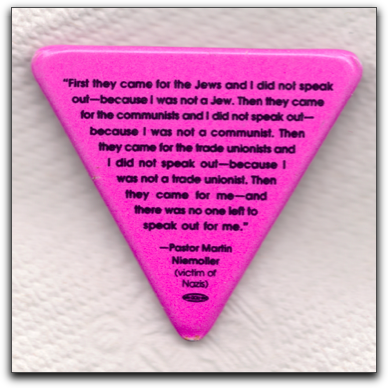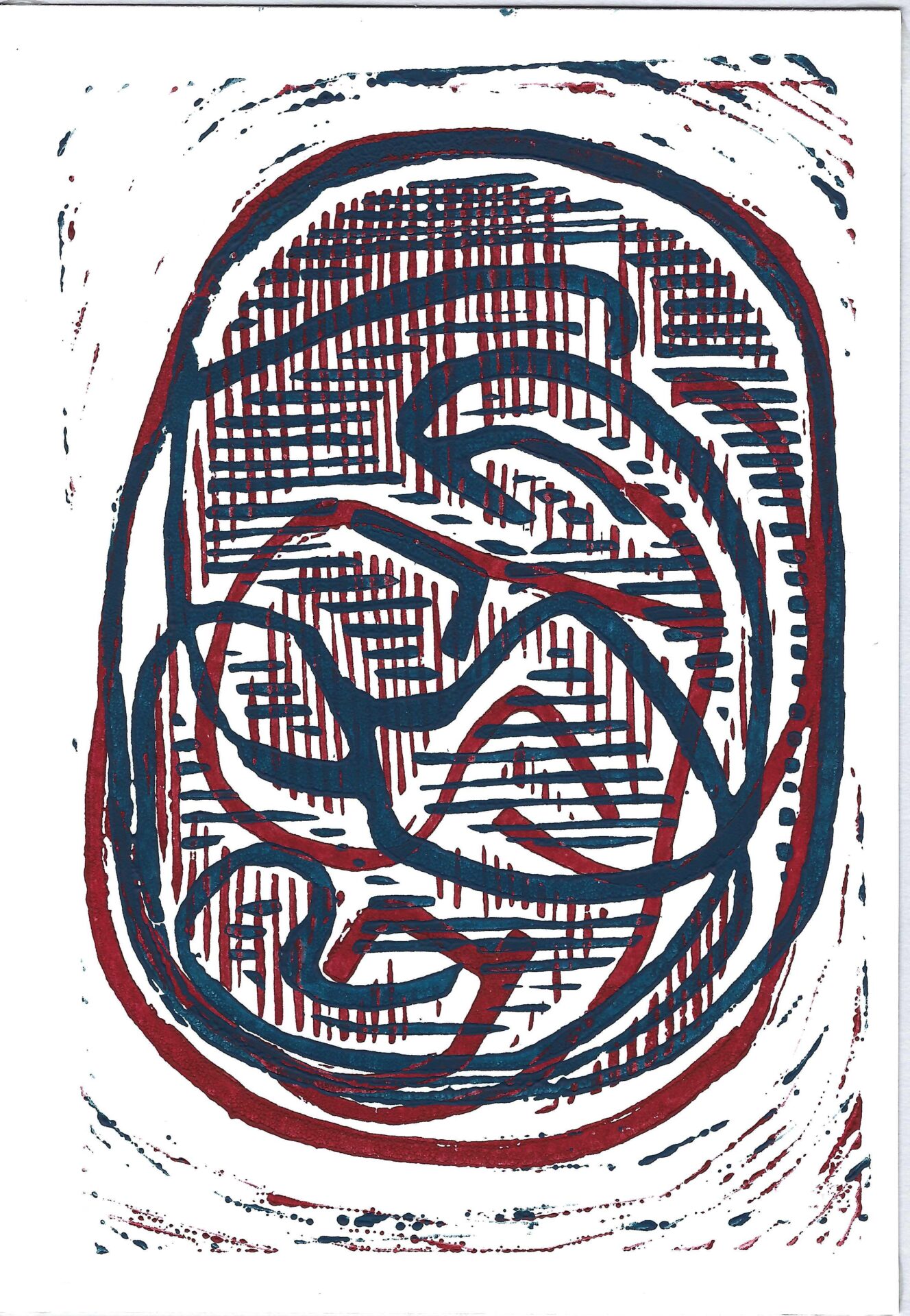what are the police doing in egypt?
At a certain point during the recent (2011) Egyptian revolution it was not always clear with which side the police identified. These Police are different. They’re singing about canaries in coal mines. They offer a personalized variant of the old metaphor.
First to fall over when the atmosphere is less than perfect
Your sensibilities are shaken by the slightest defect
You live your life like a canary in a coalmine
You get so dizzy even walking in a straight line
Here’s that “original” canary:

a coal miner’s canary
human canaries, or “the canary and the jewish question”
Nearly 50,000 pages turn up when you search for “Jews: Canaries in the coal mine?”. We seem to be some sort of human DEW Line. As is clear from the Google search, numerous contemporary commentators have made the association. Some, however, caution us Jews of being too self-centered. David Hirsch in his article Jews as canaries and hawks suggests this is what Holocaust scholars Yehuda Bauer and Emmanuel Sivan warn:
…the fight against anti-Semitism is only part of the general fight against bigotry. Both [Bauer & Sivan] found it necessary to spell out what ought to have been obvious to the delegates: that the struggles against Islamophobia and other types of racism are intimately related to the fight against anti-Jewish racism.
This careful distinction does not seem to be the issue for others. Canary In The Coal Mine, an unsigned blog originating in Phoenix, Arizona shares “News and information about anti-Semitism and Islam. Exposing the toxic nature of the Quran and all of Islam who adhere to its oppressive and deadly ideology including anti-Semitism and vicious hatred.” Paul Belien who wrote (in June 2010) at The Brussels Journal about ““Decoy Jews” in Amsterdam”:
In an effort to arrest the culprits who terrorize Jews, the Amsterdam authorities have ordered police officers to walk the streets disguised as Jews. The Dutch police already disguise officers as “decoy prostitutes, decoy gays and decoy grannies” to deter muggings and attacks on prostitutes, homosexuals and the elderly. Apparently sending out the decoys has helped reduce street crime. The “decoy Jew” has now been added to the police attributes.
One of the commentors to the article suggests, a re-reading of pastor Martin Neimöller’s “poem” even though he seems to have misconstrued the sequence of events reported in it.
jews on first?
While there are several variants of Neimöller’s statement, not one of them has the Jews as the first for whom the Nazis came. A thorough study of the history of the expression was (even continues to be) made by Prof. Harold Marcuse (Herbert’s grandson). Neimöller first spoke these words in 1946. Perhaps the standard variant is that posted at the Wikipedia (I don’t think he spoke in English contractions so I’ve changed those):
First they came for the communists,
and I did not speak out because I was not a communist.Then they came for the trade unionists,
and I did not speak out because I was not a trade unionist.Then they came for the Jews,
and I did not speak out because I was not a Jew.Then they came for me
and there was no one left to speak out for me.
historical periods and cultural situations change
The Neimöller statement does not lay down a law of history, but describes a gradual process that enabled people to remain quiescent as social dangers increased. Since 1946 when he first started using the image in his speeches, Neimöller’s statement has been used in a variety of contexts, some applying to completely different situations and others absolutely inverting it’s original meaning. Clearly, “The Authorities” have come for various individuals and groups in sequence long before there were any communists or trade unionists. In these different periods and settings others take on the role of “canary”.
In the recent Egyptian revolution, the Egyptian Communist Party had already been outlawed and was so small that, even though it has a blog, and what seems to be a press release at the International Journal of Socialist Renewal it does not even have a page at the Wikipedia. Scratch them off the list. Similarly, the state controlled Egyptian Trade Union Federation was disbanded, at a meeting in Tahrir Square during the revolution, to form a new, independent Federation of Egyptian Trade Unions. The vast majority of Egyptian Jews, of course, had left. In 1948, when the State of Israel was established there were 75,000 Jews living in Egypt. By the time of the Suez war of 1956 only 50,000 remained and almost half of those left. Following the 1967 war, nearly all Egyptian Jewish men between the ages of 17 and 60 were either thrown out of the country immediately, or taken to the detention centers. Today, where Mein Kampf can be purchased at the Cairo Sheraton Hotel’s gift shop, only a hundred or so remain.
In January of 2008, Bruce Bawer used the phrase “First They Came for the Gays” to describe young Muslim men involved in an unprecedented wave of Oslo gay-bashings. Similarly, in October of 2010, Dov Bear reported how “anti-gay goons at Westboro Baptist Church” had announced that they would picket Torah Temimah, Chaim Berlin, and a Chabad shul in Brooklyn, using the headline: “First they came for the homosexuals, and I said nothing…”.
In June of 2010, Douglas Rushkoff, warning about the likelihood of the Internet causing the deterioration of professional journalism, claimed that “First they came for the musicians”.
In December of 2009 Jon Stewart questioned Fox News commentator Laura Ingraham’s use of the phrase (in her complaints about the pending health care reform bill): “First they came for the rich but I didn’t speak up because I wasn’t rich”, wondering if she recognized that “came for” was a euphemism for “round up and kill.” He pledged: “If the government begins to round up and kill the rich and the landowning and those who choose to exercise the right to bear arms… I’ll speak up.”
Additional variants appear on YouTube. Some have very high production qualities:
One uses a contemporary European setting:
And yet another creates a mashup of the above two and sets the progression in Malaysia;
Many more versions are available on the Web, easily found by searching for “first they came for”.
pink triangle and yellow star
I have used the Neimöller text in the prologue of my Haggadah (with a variant sequence of my own, that I will change to match the text quoted above). There I also suggest an analogy to an early rabbinic thought about how our enslavement occurred:
Our rabbis also tell us that the enslavement proceeded gradually. First, the Egyptians asked us to work for the Pharaoh because of an emergency. Then they told us we had to work one day a week. As Pharaoh’s demands became gradually more restrictive our people did not resist. Eventually they took our rights and independent lives from us.
But, it’s Bruce Bawer and Dov Bear’s use that interests me today the 27th anniversary of the death of Pastor Martin Neimöller. Sometime in the late 1980s or 1990s a button was published that does put Jews on first, but on a pin the color and shape of the badge gays were forced to wear in Nazi concentration camps.
I wear lapel buttons as a way of speaking out publicly. I have been wearing the Neimöller button this past week as I stand in solidarity and see attacks on American public employees unions, a variant of the “trade unionist” in Neimöller’s statement.

first they came…
| Date: | 1980s or 1990s |
| Size: | 4.4 [equilateral triangle] |
| Pin Form: | clasp |
| Print Method: | celluloid |
| Text | “First they came for the Jews and I did not speak out- because I was not a Jew. Then they came for the communists and I did not speak out- because I was not a communist. Then they came for the trade unionists and I did not speak out- because I was not a trade unionist. Then they came for me- and there was no one left to speak out for me.” -Pastor Martin |
your lapel buttons
Many people have lapel buttons. They may be attached to a favorite hat or jacket you no longer wear, or poked into a cork-board on your wall. If you have any laying around that you do not feel emotionally attached to, please let me know. I preserve these for the Jewish people. At some point they will all go to an appropriate museum. You can see all the buttons shared to date.

